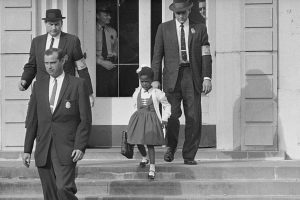February 2012:
A Dangerous Dozen: 12 Christians who Threatened the Status Quo But Taught Us to Live Like Jesus
By the Rev. Canon C.K. Robertson, PhD
Foreward by Archbishop Desmond Tutu
Review:
As Canon C. K. Robertson readily admits, any selection of 12 exemplary Christian saints and prophets who “threatened the status quo,” once it reaches beyond the more obvious choices, is by nature subjective and open to being challenged. But with his sometimes surprising choices, Robertson introduces his readers to a fascinating and quite diverse cast of characters that is definitely worth knowing better.
Spanning five continents and 2,000 years of Christian history—and ranging from Paul of Tarsus to Oscar Romero and the Chinese church leader K.H. Ting and from Mary Magdalene to Sojourner Truth and Dorothy Day—these 12 portraits ought to inspire and give all of us a little more courage to follow the Nazarene troublemaker by living the gospel more faithfully and without worrying too much about rocking the boat.
—Meinrad Scherer-Emunds, Executive Editor, U.S. CATHOLIC
 SkyLight Paths Publishing says: Meet 12 fascinating Christian change agents who were unafraid to ask what God would have them do in the face of life’s realities—and unafraid to go ahead and do it.
SkyLight Paths Publishing says: Meet 12 fascinating Christian change agents who were unafraid to ask what God would have them do in the face of life’s realities—and unafraid to go ahead and do it.
Paperback: $16.99
Available at bookstores or from SkyLight Paths Publishing: 800-962-4544 or shop online at www.skylightpaths.com
Suggested Discussion Questions from SkyLight Paths Publishing:
Some people say that being a “good Christian” is primarily about believing the right things about Jesus. Others say that it is primarily about living like Jesus and following his principles. What do you think … and why?
Jesus has been depicted in different ways at different times, in books, movies, advertising. What depiction of Jesus most closely resonates with you? Are there any that you don’t like or don’t appreciate? Why?
If someone asked you who Jesus is to you, what would be your answer?
1. PAUL OF TARSUS: The Catalyst
What was your impression of the apostle Paul before reading this chapter? How did you come to our opinion of him? What do you think now?
Paul’s companion Barnabas had to vouch for him to a group of very reluctant apostles. When have you had to stand up for someone who was not welcome?
Paul’s letters, despite their unique contexts, all touch on the need for church members to look beyond their differences and find their common identity in Christ. Why is that so difficult for people in both religious and secular systems? What groups today do it well?
2. MARY MAGDALENE: The Witness
Down through the millennia, Christians have found in Mary Magdalene an astonishing variety of meanings. What does she mean to you? How does her example point you closer to the Divine?
Have you encountered other Mary Magdalenes—either in your own experience or in literature, current affairs, or even your own family? In what ways have they been marginalized?
What can our own society learn from Mary’s demotion in Christian history from “apostle to the apostles” to reformed prostitute and back to heroic figure?
3. ORIGEN OF ALEXANDRIA: The Innovator
The struggles Origen faced were partly the result, not of theological disputes, but of rivalries and personality clashes. How do such things still cause problems, and what can you do to encourage honest communication when faced with these personal resentments?
Origen’s most controversial belief was that even the devil would one day be won over to God’s overwhelming love. What do you think about that?
Another hot-button issue introduced by Origen was his own version of reincarnation, in which human beings are reborn until the time when they finally accept the transforming love of God. Why is this idea even now appealing to some and repulsive to others?
4. FRANCIS OF ASSISI: The Radical
Before reading this chapter, what was your image of Francis? How, if at all, has that view changed now?
In what ways do we see our society taking seriously the notion of all of creation as “brother” and “sister”? How are we still falling short of Francis’s ideals?
It has been said that no system can stay at the same level of intensity forever and has to be “domesticated” in order to survive. Do you agree with this? What was lost in the transition of leadership from Francis to Elias? What was gained?
5. HILDEGARD OF BINGEN: The Visionary
Music was such an important part of Hildegard’s worship and life. How does music enter into your own experience of God?
Hildegard had strong feelings about decisions being made without consulting the person involved. Have you ever experienced a sense of powerlessness while others made important decisions for you? How does Hildegard’s response offer you inspiration?
What could Hildegard’s concept of “greenness” mean for our society today?
6. THOMAS CRANMER: The Reformer
Though Cranmer was a man of strong conviction, he sought the moderate, middle way. Far from being the way of easy compromise, his way of moderation was challenged and challenging. When has your faith journey compelled you to look for a middle way?
Cranmer recanted, and then recanted his earlier recantation. Have there been times when you realized you had made a mistake and needed to change your course?
The Anglican way that Cranmer initiated asserted that common prayer, not common agreement, is what joins Christians together. Do you know some Christians with whom you disagree on significant issues, yet still feel comfortable praying with them?
7. SOJOURNER TRUTH: The Liberator
There was nothing pretentious about Sojourner Truth. She was always direct, always honest in her dealings with people. Whom do you go to when you need forthright, honest feedback? Would others come to you for the same, and if not, why not?
How did Sojourner pave the way for other prophets who would fight for full and equal rights for all? Where do we still see a need for such prophets?
Sojourner spoke of “God’s breath” filling her and making her a new person. When have you experienced “God’s breath,” in you or in someone you know?
8. DOROTHY DAY: The Activist
The gospel called Dorothy Day to devote her life to the poor and marginalized. Why do you think her work posed a danger to Church authorities?
Who are contemporary leaders who minister to the poor or who work for causes such as ending war? In what ways is their work related to the work of Dorothy Day?
Dorothy Day sought to live a life of “little works.” How can you adopt that philosophy in your own life?
9. DIETRICH BONHOEFFER: The Resister
From the earliest days of the Nazi rise to power, Bonhoeffer was one of very few who called the Church to beware. What if he had been wrong? How do we know when we need to speak out and when to stay silent?
For Bonhoeffer, the formation of Christian leaders was crucial to the work of the gospel. What are some ways that you can help in the formation of faithful Christian leaders today?
Bonhoeffer felt dread and even self-doubt while in prison, yet pressed on in faith nonetheless. When you have found yourself near despair? What has kept you going?
10. JANANI LUWUM: The Revivalist
Janani Luwum faced criticism from both sides for his approach to Church-state relations. In our more democratic context, what does it mean to stand for Christ and for God’s children in need?
Regarding Idi Amin, Luwum said that “even the president needs friends.” What does it mean to show “friendship” to leaders when they are acting clearly in the wrong?
It is not difficult to see how Luwum was influenced by figures such as Gandhi and Martin Luther King Jr. Who are persons you have not met but whose life and teachings have influenced you?
11. OSCAR ROMERO: The Advocate
In the movie of Romero’s life, it is easy to see his reluctance to stir up trouble. Only after the murder of his friend, Father Grande, did he find the courage to speak up. What has kept you from speaking up in the past?
Romero called his opponents to repent and be forgiven, a tall order when one considers the oppression they enforced. When is it appropriate for soldiers and others under authority to say “no” and go against their superiors?
Janani Luwum and Oscar Romero were contemporaries of one another. What similarities do you see in them, and what differences?
What does the phrase “the violence of love” mean to you? Is it real … or realistic?
12. K.H.TING: The Reconstructionist
K. H. Ting has proved himself to be loyal to his country, while also being willing to criticize it and its excesses. What do you love about your country, and what would you like to see changed or improved in it?
Ting has continually emphasized the need to work in and with society, while other Chinese evangelists have at times focused almost exclusively on preparation of the soul for heaven. What do you think is the right balance? What does it mean to live for Jesus in the here and now while also keeping sight of eternity?
Ting has repeatedly insisted on the importance of “running the church well.” What does this mean to you? What does a church “run well” say about the gospel we proclaim to the world?













Add comment